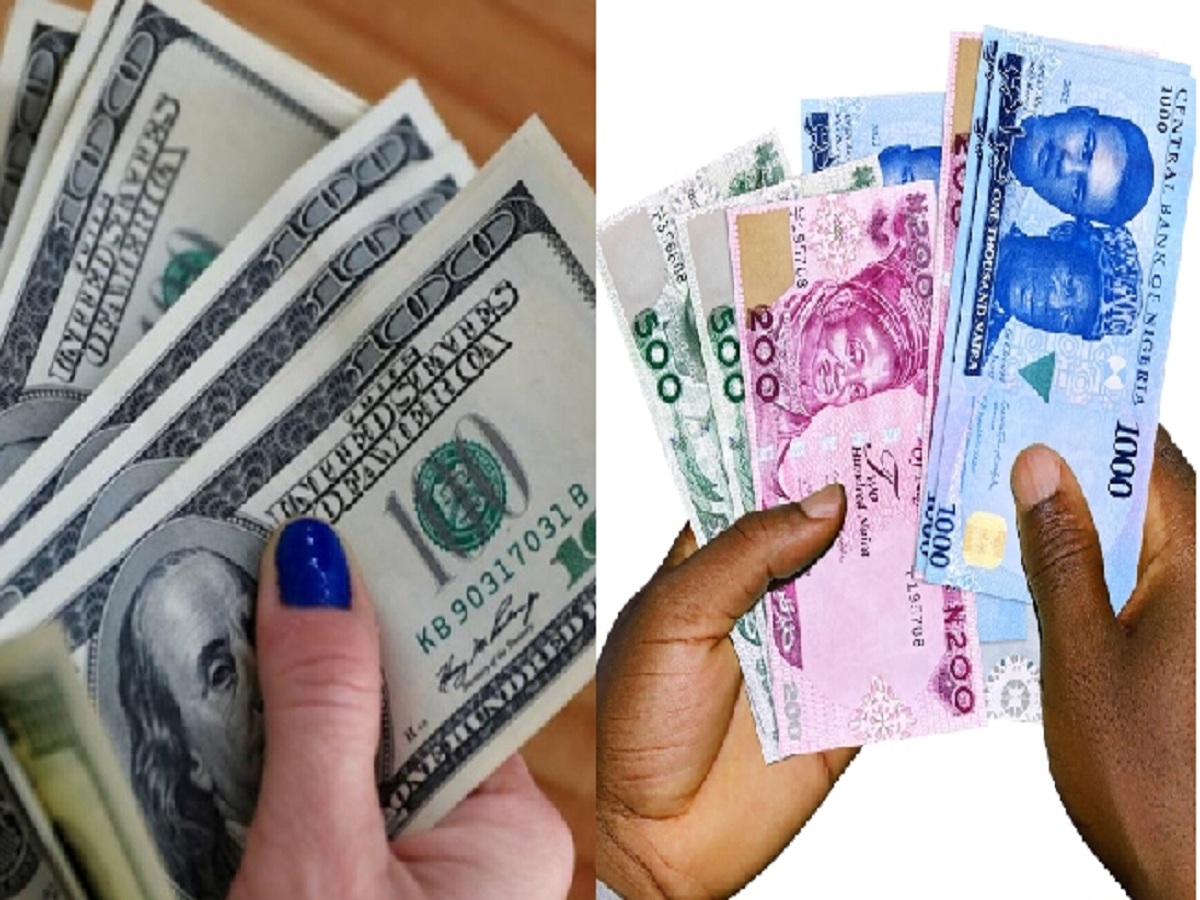The Central Bank of Nigeria on Tuesday in Abuja announced its decision to maintain Monetary Policy Rates (MPR), which benchmarks interest rates at 27.5 per cent.
The decision of the Monetary Policy Committee of the bank was made known to journalists at a press briefing by the Central Bank governor, Mr. Olayemi Cardoso, at the 300th MPC meeting held in Abuja
He said the decision was hinged on the moderation of food inflation as well as the sustained efforts in fighting insecurity, especially in farming communities.
Daily Trust reports that the MPC at its last meeting in February 2025 also maintained the interest rate at 27.5 per cent, following the rebasing of the Consumer Price Index (CPI).
Subsequently, the retention of the Monetary Policy Rate at 27.50 per cent marks its second consecutive hold in 2025.
This second retention in rates is coming after six consecutive hikes recorded in 2024.
Cardoso said, “The committee was unanimous in its decision to hold policy and thus decided as follows: Retain the MPR at 27.50 per cent,” adding that the pause would enable members to better understand near-term developments in the economy.
With this move, the CBN retained the asymmetric corridor around the MPR at +500/-100 basis points, the Cash Reserve Ratio of Deposit Money Banks at 50.00 per cent and that of Merchant Banks at 16.00 per cent, while keeping the Liquidity Ratio unchanged at 30.00 per cent.
Reasons behind holding rates
Mr. Cardoso told journalists that the MPC based its decision on recent improvements in macroeconomic indicators, especially food inflation, which had begun to moderate.
“All 12 members of the committee were present and the decision of the committee was unanimous to maintain rates at 27.5 per cent and cash reserve ratio for Deposit Money Banks at 50 per cent and 16 per cent for merchant banks.
“Also, the Liquidity Ratio of banks was also maintained at 30 per cent,” Cardoso said.
He added, “The committee’s decision was hinged on the moderation of food inflation and success in the fight against insecurity, especially in farming communities.”
According to the National Bureau of Statistics, headline inflation dropped to 23.71 per cent in April 2025 from 24.23 per cent in March.
On a month-on-month basis, inflation also declined significantly from 3.9 per cent to 1.86 per cent.
Food inflation fell to 21.26 per cent from 21.79 per cent, while core inflation eased to 23.39 per cent in April from 24.43 per cent in March.
Cardoso, however, stated that the committee notes these developments with cautious optimism.
“The MPC noted the relative improvements in some key macroeconomic indicators which are expected to support the overall moderation in prices in the near to medium term,” Cardoso said.
He also acknowledged the efforts of the government in improving food supply and tackling insecurity in farming communities.
Despite these gains, the CBN expressed concern about lingering inflationary pressures driven by high electricity costs, persistent demand for foreign exchange, and structural issues within the economy.
“The committee welcomed reforms introduced by the federal government aimed at boosting local production and reducing demand for forex, noting that such moves would help dampen inflationary pass-through.
“The MPC also reviewed developments in the foreign exchange market and urged the apex bank to continue implementing reforms to enhance investor confidence,” he further explained.
Other resolutions of MPC
Speaking further, the governor noted that Nigeria’s gross external reserves increased by 2.85 per cent to $38.90bn as of May 16, 2025, compared to $37.82bn at the end of March, representing 7.6 months of import cover.
Cardoso said the committee was encouraged by the progressive narrowing of the gap between the official and parallel forex market rates and urged the fiscal authorities to intensify efforts to grow FX earnings, particularly from oil, gas, and non-oil exports.
The committee further acknowledged the improvement in Nigeria’s real GDP, which grew by 3.84 per cent in the fourth quarter of 2024, up from 3.46 per cent in the previous quarter, driven by both oil and non-oil sectors, especially services.
However, Cardoso expressed concerns about declining crude oil prices, which could threaten fiscal revenues.
“The committee expressed concerns about the recent decline in crude oil prices, attributable to increased production by non-OPEC members as well as uncertainties associated with U.S. trade policy, which present new challenges for fiscal receipts and budget implementation,” he said.
The MPC commended the relative stability in the banking sector and called on the apex bank to sustain effective oversight amid the ongoing recapitalisation exercise.
“Members reaffirmed their commitment to prioritise policies targeted at anchoring inflation expectations and easing exchange rate pressure,” the governor said.
What this mean for the economy
Daily Trust reports that the CBN’s decision to hold rates steady signals its focus on maintaining price stability while cautiously supporting economic recovery.
By maintaining current rates, the bank is giving room for existing policies to yield results before implementing further adjustments.
According to the MPC communiqué, the committee emphasised the importance of coordinated efforts between fiscal and monetary authorities to sustain economic growth and manage inflationary pressures.
Market analysts suggest any potential rate cuts will depend on inflation trends and exchange rate stability over the coming months.
However, if inflation continues to moderate and the foreign exchange market stabilises, the CBN may consider a more accommodative policy stance in the second half of the year.
Similarly, Daily Trust reports that analysts at Cordros Research projected the MPC meeting will maintain the status quo on rates at the second meeting for this year.
At the first meeting in 2025, the committee voted to retain the interest rate or Monetary Policy Rate at 27.50 per cent, retain the Cash Reserve Ratio (CRR) at 50 per cent for deposit money banks and 16 per cent for merchant banks.
Cordros, in a report, stated that since the last MPC meeting, the global economic landscape has grown increasingly volatile and uncertain, primarily driven by persistent trade protectionist policies in the US.
“In our view, the MPC is likely to take these developments into account, particularly the elevated global uncertainty and its adverse implications for naira stability, despite a positive real rate of return, given the current inflation rate.
“Against this backdrop, we expect the MPC to adopt a cautious stance, leaving the Monetary Policy Rate (MPR) unchanged, alongside retaining all other policy parameters in a bid to anchor inflation expectations and maintain the naira’s attractiveness.”
They noted that in the FX market, the naira has come under renewed pressure in addition to heightened global uncertainty stemming from the tariff war, triggering capital outflows from foreign portfolio investors, further tightening FX liquidity.
Oil prices and fragile investor sentiment could undermine foreign investor confidence.
“Accordingly, we expect the MPC to maintain a cautious stance by holding the MPR at 27.5% and leaving all other policy parameters unchanged,” Cordros analysts added.
We expected rate cut – NASME
The National Association of Small and Medium Enterprises (NASME) said the organised private sector is not happy with the retention of the rates, saying they expected the rates to be reduced to support the local manufacturers and the small business owners.
Lagos State Chairman of NASME, Prof. Adams Adebayo in a chat with Daily Trust said, “Our expectation was to reduce it. But now that they have retained it, we don’t know what is going to happen to the organised private sector in the country and the small scale industries.
“Because when you look at the cost of doing business, the cost of energy is still on the rise and inflation has not reached a level that is tolerable enough for the economy to stabilise. In the last two weeks, the forex has really gone up again to about N1,600.
So, with the retention of the MPR rate, the impact now is that it is going to have a negative effect on the local manufacturers. It may not have much impact on the foreign investors and the foreigners that are manufacturing here in the sense that they have seen that the Nigerian economy is trying to experience a rebound and there are expectations that there is going to be a crash in the forex.”












